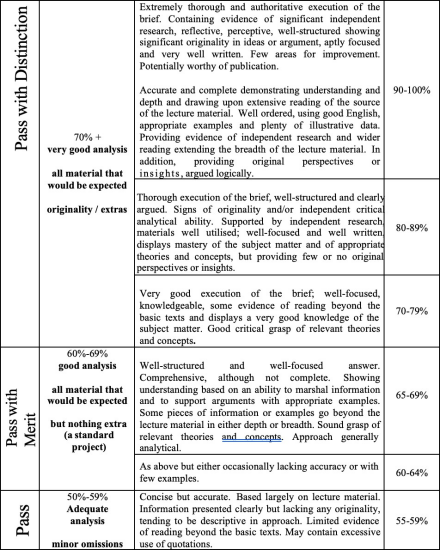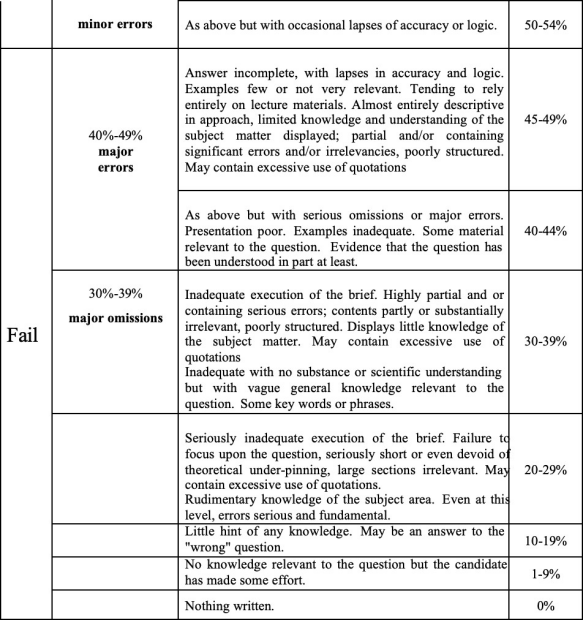| Category | Assignment | Subject | Management |
|---|---|---|---|
| University | Newcastle University | Module Title | NBS8061 Managing Across Cultures |
| Word Count | 1500 words (+/- 10%) |
|---|---|
| Assessment Title | Reflective Essay on Managing Across Cultures |
| Academic Year | 2025/26 |
For this assignment, you will write an essay that reflects on your experience of working in a multicultural environment. Your essay should be based on a critical incident* where cultural difference caused challenges and/or created valuable learning opportunities. This incident may come from paid employment, unpaid work such as a university group project or any other situation where you interacted with people from different cultural backgrounds.
In your essay, you should first describe the incident in enough detail to give the reader a clear understanding of what happened. You should then analyse the situation by ex- plaining how the challenges were managed. Your analysis must be supported with rel- evant theories and literature from the module. In doing so, aim to show not only what you experienced, but also how your understanding of cultural differences has been deepened through engagement with academic ideas. Finally, reflect on what you learned from this experience and consider how these lessons might influence your fu- ture professional and/or academic practice.
A critical incident is an event that draws attention to important issues or challenges. Such incidents often illustrate how cultural differences can affect areas such as communication, teamwork, decision-making, leadership, trust, feelings of exclusion, or time management, for example.
Choose an incident that is meaningful to you and use it to demonstrate what you have learned about cross-cultural management. Incidents from university projects are just as valid as those from professional work. What matters is the quality of your analysis, not whether you have professional experience.
Weighting: 100% of the final mark
Deadline: 12th December at 12 noon
e submissions: Work submitted after the deadline will incur a fixed penalty of a 5% deduction from the final mark for each calendar day it is late. Submissions more than seven days after the deadline will automatically receive a mark of zero.
If you are affected by personal extenuating circumstances (PEC), you should submit a PEC form. More information can be found here: Newcastle University
Word count: The length of the essay is 1500 words (+/- 10%). This does not include the title page or reference list. State the word count on the title page. Being over or under the word limit will result in penalties.
Submission: Submit your essay through the NBS8061 Canvas site. Go to the Assignments section and upload your work to the relevant submission folder. The folder will be made available later in the term, closer to the deadline.
If you have questions about the submission process or face any issues, please contact the Education Admin Team at: nubseducationadmin@ncl.ac.uk
If you face technical issues, contact IT support at: it.servicedesk@ncl.ac.uk / +44 (0) 191 208 5999
Seeking with your NBS8061 Assignment? Deadlines Are Near?
Request to Buy AnswerYour essay will be assessed using the standard postgraduate criteria (available on Canvas and at the end of this document). Marks will be awarded based on the following:
Essays will be marked by the module teaching team. Some essays will be double-marked, and around 10% will be subject to internal and external moderation to ensure quality and con- sistency.
Please note that once marks are finalised and released on Canvas, they cannot be changed. If your performance is affected by personal extenuating circumstances, please contact your personal tutor, the Education Admin Team and review the PEC and Appeals procedures.
Title page: Include the essay title, the total word count (excluding references and appen- dices), and your student ID number. Do not include your name, as all submissions are marked anonymously.
Introduction: Briefly outline the critical incident you have chosen and explain why it is signif- icant. Explain clearly what the task or activity involved (e.g. a paid work task or a university student assignment), the cultural backgrounds of those involved in the incident and what happened that made it an “incident” in your view. Explain how the incident connects to one or more of the topics covered in this module. As this is a reflective essay, you must include a statement about your own cultural background (e.g. what culture(s) you have been brought up in, or been influenced by, in your life to date, such as your home country culture, culture of your parents, culture of the countries you have lived or worked in).
Analysis: Examine the incident using relevant academic theories and literature from the mod- ule. You may also draw on additional sources if they are clearly relevant. Rather than men- tioning many theories superficially, focus on one or two frameworks/concepts in depth. Use these frameworks to demonstrate how cultural differences (or similarities) influenced the sit- uation and to evaluate how challenges were addressed or opportunities were taken. You must also include in your analysis how your perspective may have shaped your interpretation of the incident based on your own cultural background.
Conclusion: Summarise the main insights gained from your reflection and analysis. Discuss what you learned about yourself and about cross-cultural management, highlighting the role of theory taught in this module in deepening your understanding. Explain how these lessons could influence your future academic and/or professional practice. If appropriate, briefly ad- dress any ethical issues raised by the incident.
Reference list: List sources as per the Harvard referencing style.
The structure provided above is only a guide. You may adapt it or use an alternative framework, such as Gibbs’ Reflective Cycle (introduced on Canvas and in Workshop 3). Whichever approach you choose, your essay must be clear, coherent, well organised and supported by academic literature.
The assignment should be submitted as a Microsoft Word document, not as a PDF. The font size must be 12 and all pages should be numbered consecutively. Margins of 2.5 cm should be applied on the left, right, top, and bottom of each page.
Follow the Harvard referencing style for both in-text citations and reference list.
You can use diagrams, tables and photos to support your discussion as long as these are relevant to your essay and add new insights. Always cite the original source when using such materials.
You are permitted to use first-person pronouns for this assignment. However, it is essential that your discussion remains analytical and informative. Your reflections should be supported by relevant literature and evidence from reliable sources.
Formative feedback will be given during workshops via various exercises and discussions. You will also have opportunities to ask questions about the assessment in workshops, at online drop-ins, and via the Canvas discussion board.
Individual written feedback and marks will be released by February 2026, following the Term 1 assessment period. Feedback will highlight how your work met the assessment crite- ria, identifying both strengths and areas for improvement.
In the unfortunate case of a fail mark, the Education Admin Team will provide instructions for resit, which will take place in August 2026.
Additional guidance will be provided in lectures, workshops, and two online sessions dedi- cated to the assessment (scheduled in Weeks 14 and 15).
You will also find resources titled “Tips for Studying” on the Canvas site, which may be help- ful when preparing your essay.
If your academic performance is affected by Personal Extenuating Circumstances, please contact the module leader for advice and support.
Your essay will be assessed on the elements outlined in the “NBS8061 Assessment Criteria” section above – i.e., selection of the critical incident, application of theory, depth of analysis and reflection, and quality of academic writing - and will be marked in accordance with the Standard PGT Criteria:


Stuck Your NBS8061 Assignment? Deadlines Are Near?
Hire Assignment Helper Now!Many Newcastle University students are struggling with their NBS8061 Management Across Cultures assignment. If you need expert guidance, our Business Management Assignment Help service is here for you. We offer top-quality Assignment Samples that make complex topics simple and clear. Our team provides 100% original, plagiarism-free, and easy-to-understand content. Choose the Best Assignment Help to improve your grades and confidence. Learn smartly with expert support you can rely on.
Hire Assignment Helper Today!
Let's Book Your Work with Our Expert and Get High-Quality Content
